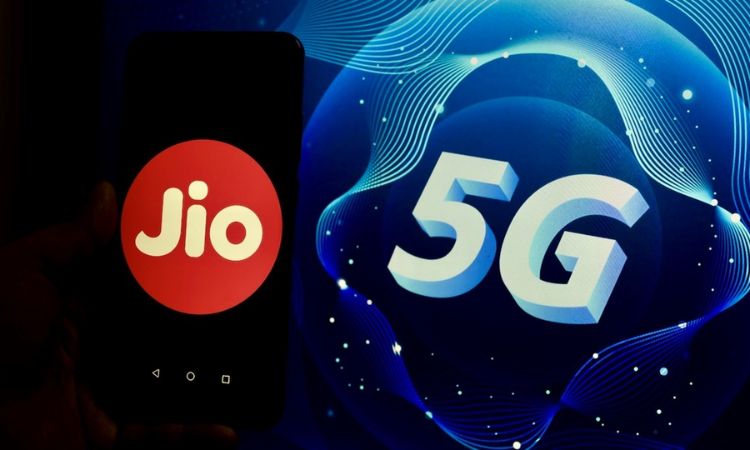Reliance Jio Infocomm, a prominent telecom operator in India is on the verge of finalizing a significant contract worth $1.7 billion with Nokia for 5G network equipment. Alongside this deal, Jio is also set to strike a $2.1 billion agreement with Ericsson. To facilitate Jios’ financing needs several esteemed global banks such as HSBC, JP Morgan, and Citigroup provide support through syndicated offshore loans. Jios’ ambitious plans include a nationwide rollout of their services by 2023. This further emphasizes their dedication to transforming India’s 5G landscape. Evident from their adoption of a standalone mode and collaboration with renowned European vendors.

Reliance Jio Infocomm, in an astonishing move set to transpire this week, is reportedly on the brink of sealing a staggering $1.7 billion (₹13,980 crores) contract with Nokia, the renowned Finnish company, to procure cutting-edge 5G network equipment, said credible sources.
The contract’s execution is slated for as early as Thursday, anticipated to transpire at Nokia’s headquarters near Helsinki. The momentous occasion shall witness the presence of senior executives from Reliance Industries’ telecom unit, along with representatives from the financial institutions facilitating the purchase.
This significant development shall complement the mammoth $2.1 billion worth of equipment that India’s foremost telecom operator plans to acquire from Ericsson, the prominent Swedish company. This endeavor is part of Reliance Jio’s ambitious scheme to introduce 5G mobile broadband services throughout the nation before the end of this year.
To finance these momentous 5G equipment deals with Nokia and Ericsson, Reliance Jio has secured the support of various global banks, including HSBC, JP Morgan, and Citigroup.
These financial institutions shall assist Jio by arranging syndicated offshore loans, amassing an astonishing sum of nearly $4 billion. Notably, Jio has approached these international banks to raise loans for funding the Ericsson 5G contract, as reported by the media.
Uniquely positioned as the exclusive holder of 5G airwaves within the remarkably efficient 700 MHz band, the telecom behemoth led by Mukesh Ambani has opted for the standalone mode, distinctively independent of the existing 4G network, for its nationwide deployment of the next-generation communication technology. In this momentous endeavor, Jio has chosen to collaborate primarily with European vendors such as Ericsson and Nokia.
In a remarkable move aimed at bolstering the lenders’ confidence while reducing overall funding costs, the European export credit agency, Finnvera, shall issue guarantees to the global lenders facilitating the offshore loans granted to Jio.
Jio has been rapidly expanding its 5G coverage since October of the preceding year and has set its sights on achieving an all-encompassing rollout of 5G services across India by the conclusion of 2023. The company has introduced 5G services in over 6,000 cities and towns.
The colossal investment earmarked by the company for 5G endeavors amounts to a staggering $25 billion, with a considerable portion of $11 billion being dedicated to the acquisition of 5G spectrum last year. The remaining $14 billion shall be allocated over the next four years to network assets and customer premise equipment, underscoring Jio’s unwavering commitment to advancing the nation’s telecommunications infrastructure.
Experts in the industry have aptly pointed out that Jio’s immediate 5G capital expenditure requirements will likely surpass those of Bharti Airtel, owing to the former’s necessity to invest in a greater number of base stations compatible with multiple 5G bands, encompassing both the 3.5 GHz and 700 MHz spectrum.
On the other hand, Airtel’s investment in a comparatively smaller number of 5G base stations can be attributed to its decision to opt for the non-standalone mode for its 5G rollout. This particular mode capitalizes on existing 4G mid-band airwaves, such as the 1800 MHz, 2100 MHz, and
2300 MHz frequencies, which Airtel already possesses in substantial quantities. Additionally, Airtel leverages its C-band capacity 5G spectrum (3.5 GHz) to provide enhanced speeds, further streamlining its capital expenditure requirements.
However, Jio’s standalone mode, deemed a superior iteration of 5G technology, offers unparalleled advantages for applications such as network slicing, low-latency use cases, Internet of Things (IoT), and indoor mobile broadband coverage. It should be noted that the device ecosystem supporting the 5G-standalone mode will require additional time to reach full maturity, as acknowledged by industry experts.















